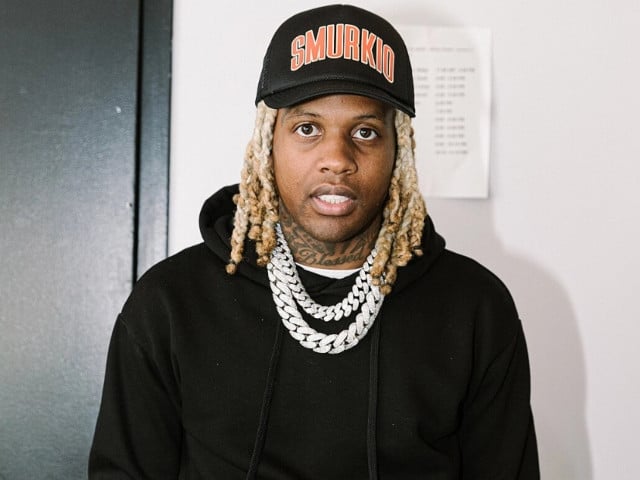As Lil Durk prepares to face trial in January for an alleged federal murder-for-hire plot, new developments are surfacing. One of his co-defendants, Kavon London Grant, has filed for a protective order, citing serious concerns about the safety of witnesses, victims, and defendants involved in the case. Grant, along with his attorney Peter C. Swarth, is seeking to limit public access to sensitive information related to the proceedings, arguing that unregulated exposure could lead to retaliation or intimidation.
Here's ads banner inside a post
Safety Concerns Take Center Stage
In a legal filing obtained by AllHipHop, Grant’s attorney outlined the potential dangers of allowing unrestricted access to critical documents. “This case involves significant safety concerns regarding disclosure of names and personal identifying information of victims, witnesses, and defendants,” Swarth explained. He emphasized that the materials in question include crime scene photographs, autopsy reports, and testimony from protected witnesses. Swarth warned that public access to such details could jeopardize the safety of those involved, making a strong case for strict confidentiality measures.
This motion highlights the tense and high-stakes nature of the trial, where fears of retaliation or intimidation loom large. Grant and his legal team argue that without proper safeguards, the integrity of the case—and the safety of its participants—could be compromised.
Details of the Case Against Lil Durk
Lil Durk, whose real name is Durk Derrick Banks, was arrested in October along with several members of his Only The Family (OTF) collective. Authorities accuse them of orchestrating the attempted murder of rival rapper Quando Rondo in 2022. Prosecutors allege that OTF operates as a “hybrid organization,” functioning as both a music label and a criminal gang.
Here's ads banner inside a post
Court documents detail serious accusations against Banks, claiming he placed a bounty on an individual named “T.B.,” with whom he was reportedly feuding. The complaint states, “Banks ordered T.B.’s murder and that the hitmen used Banks and OTF-related finances to carry out the murder.” Prosecutors argue that this act was part of a larger cycle of retaliation for the 2020 killing of Chicago rapper King Von, a close friend and collaborator of Lil Durk.
Authorities describe the attempted murder as meticulously planned, with financial resources from OTF allegedly facilitating the operation. The accusations paint a troubling picture of organized criminal behavior, intertwining the music industry with violent gang activity.
Durk’s Arrest and Legal Challenges
Lil Durk remains in federal custody, facing the possibility of life in prison if convicted on all charges. His arrest unfolded dramatically, with U.S. marshals detaining him in South Florida as he allegedly attempted to flee the country. Authorities claim he had multiple flights lined up at a nearby airport, further fueling speculation about his involvement in the alleged plot.
Here's ads banner inside a post
Despite the serious allegations, Lil Durk has maintained his innocence. He pleaded not guilty during an earlier court appearance, asserting that the charges are baseless. His legal team is preparing to mount a vigorous defense as the trial date approaches, but the mounting evidence and testimony from protected witnesses present significant hurdles.
The Larger Implications
This case has far-reaching implications, not only for Lil Durk and his co-defendants but also for the broader music industry. The allegations against OTF underscore the blurred lines between music collectives and criminal enterprises, a narrative that has often surrounded rap culture. Critics argue that such cases reinforce harmful stereotypes about hip-hop artists, while others point out the real consequences of street feuds spilling over into the public sphere.
The protective order sought by Grant’s attorney further highlights the complexity of the situation. While legal proceedings are typically open to public scrutiny, the need to safeguard participants in high-profile criminal cases can sometimes outweigh the principle of transparency. If granted, the protective order could limit the flow of information to the public, shielding sensitive details from becoming fodder for retaliation or media sensationalism.
What’s Next for Lil Durk?
With his trial set to begin in January, Lil Durk’s future hangs in the balance. The stakes couldn’t be higher, with his music career, personal freedom, and reputation on the line. Meanwhile, the motion for a protective order adds another layer of drama to an already complex legal battle.
As the hip-hop world watches closely, the case against Lil Durk serves as a stark reminder of the challenges and dangers that can accompany fame, particularly in a genre so often linked to real-life conflicts. Whether he will be able to clear his name remains to be seen, but one thing is certain: the road ahead for Lil Durk and his co-defendants will be anything but smooth.

